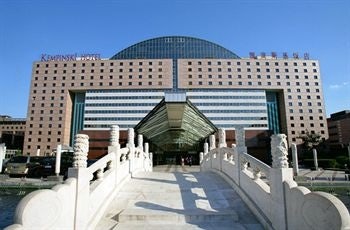Luxury Hotel Group To Add 12 Hotels To 11 Currently Under Management Within Next 3 Years#

Polish luxury hoteliers the Kempinski Hotel Group, which currently manages 11 hotels in China, in cities like Beijing, Chengdu, and Xi'an, has announced that the company plans to more than double the number of hotels under its management within the next three years. Of these 12 new hotels, the first should be Kempinski Xiamen, which recently held its topping-out ceremony and is expected to open early next year. According to the China Economic Review, Kempinski's expansion plan is part of its broader strategy to account for 20% of the hotel group’s total turnover and profits by 2013, over the current 15%.
In addition to its expansion plan, 4Hoteliers says that the Kempinski Group is planning to open a "China-Only" five-star hotel brand, Nuo. From an article last month:
The group also expects its business to blossom in the country after the Nuo brand comes into existence and expands its network.
"Nuo and Kempinski will share the same team, resources and technology. We intend to have Nuo hotels in all major cities of China," [Reto Wittwer, president and chief executive officer of Kempinski] said.
Kempinski's stated focus on the China market will likely ensure its new Kempinski-name hotels do well, but will Chinese travelers be interested in Nuo? As we wrote recently, one of the dangers of sub-brands is that they'll alienate your target customers. If a business traveler or tourist is wealthy enough to spring for a five-star hotel in one of China's "major cities," why would he or she choose Nuo over the Kempinski? But if Nuo tries to target a different demographic, e.g., younger, middle-class, white-collar travelers, they risk working hard to attract a demographic that is still ill understood, amorphic, and largely unwilling to choose luxury over necessity.
As the Kempinski Group's broader plan for Nuo takes shape in coming months, it will be interesting to what kind of marketing and branding approach they'll adopt in order to address the difficulties inherent in launching a presumably less expensive version of the "Kempinski Experience" in China.